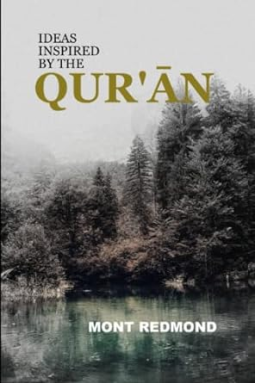
Ideas Inspired by the Qur'an
by Mont Redmond
This title was previously available on NetGalley and is now archived.
Send NetGalley books directly to your Kindle or Kindle app
1
To read on a Kindle or Kindle app, please add kindle@netgalley.com as an approved email address to receive files in your Amazon account. Click here for step-by-step instructions.
2
Also find your Kindle email address within your Amazon account, and enter it here.
Pub Date Jan 22 2023 | Archive Date Feb 17 2024
Talking about this book? Use #IdeasInspiredbytheQuran #NetGalley. More hashtag tips!
Description
“We know GOD better than we know ourselves.”
This is the first sentence of the book – a statement that poses a challenge to three types of readers.
Muslim and Non-Muslim readers with an interest in philosophy may be surprised to learn how the Qur’ān can illuminate the problem of evil, the rationality of faith, the limits of science and religion, and the nature of reality. Where do the ideas of Plato, Aristotle, Al-Ghazzālī, Vico, Mill, and Spengler fit within the frame of Qur’ānic metaphysics? How were the modern demand to ‘see’ God and the persistent elevation of facts over values both anticipated and dismissed as moral and intellectual failures in the Qur’ān?
Many Muslim readers will be nonplussed to learn how little of the Qur’ān they have digested fresh from its Source. As Islamic society faces accelerating cultural collapse, cognitive dissonance, and loss of self-confidence, where in the Qur’ān can they find the inspiration and courage to keep up the struggle? What are the ideas they need to defend their faith against scientism, secularism, and loss of the Divine? Has God become a distant father-figure for them, or is He still the heartfelt Reality of their lives?
Most importantly, the Qur’ān challenges you. You may consider yourself free of all categories, but there is no exemption from one reality, namely that “You did not get to choose ‘you.’ But for the grace of GOD, ‘you’ might be someone else.” Whether you call yourself an atheist, an agnostic, a Christian, a scientist, a believer, a scholar, or just an observer, you need to decide who and where you are vis-à-vis your personal Absolute … be that Truth, Love, Peace, or whatever you hold as your Highest Value.
By what we see in ourselves as our ultimate meaning, purpose, or ideal, we are on our way to GOD. With Him in mind (and taken to heart), we need nothing else. And so we read, in closing, a statement that offers a lifetime of deep thoughts and high hopes: “If AL-LĀH is all you have, you have it all.”
Available Editions
| ISBN | 9781738842506 |
| PRICE | $21.69 (USD) |
| PAGES | 507 |



